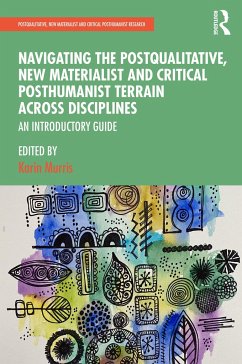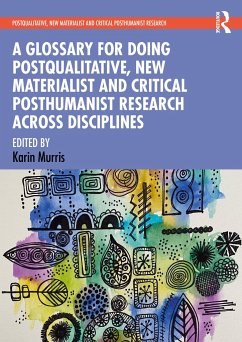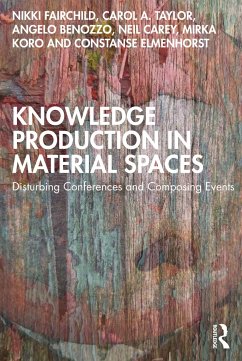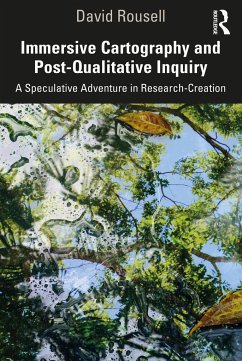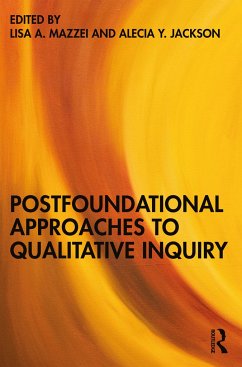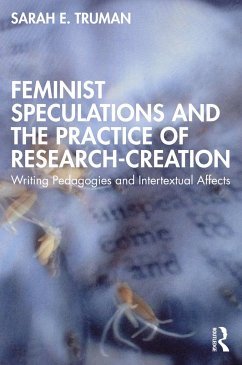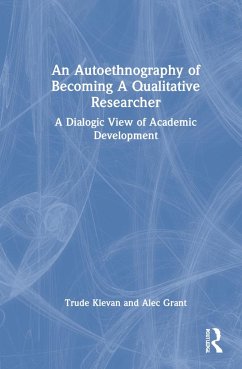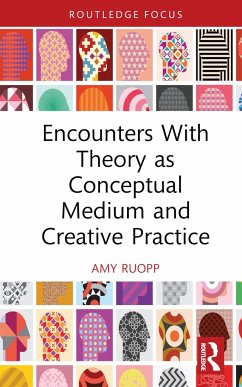
Navigating the Postqualitative, New Materialist and Critical Posthumanist Terrain Across Disciplines
An Introductory Guide
Herausgegeben: Murris, Karin
Versandkostenfrei!
Versandfertig in 6-10 Tagen
152,99 €
inkl. MwSt.

PAYBACK Punkte
76 °P sammeln!
Navigating the Postqualitative, New Materialist and Critical Posthumanist Terrain Across Disciplines is an accessible introductory guide to theories, paradigm shifts and key concepts in postqualitative, new materialist and critical posthumanist research.Supported by its own website, this first book in a larger series is an essential companion to the primary texts and original sources of the theorists discussed in this and other books in the series. Disrupting the theory/practice divide, the book offers a postqualitative reimagining of traditional research processes. In doing so, it guides read...
Navigating the Postqualitative, New Materialist and Critical Posthumanist Terrain Across Disciplines is an accessible introductory guide to theories, paradigm shifts and key concepts in postqualitative, new materialist and critical posthumanist research.
Supported by its own website, this first book in a larger series is an essential companion to the primary texts and original sources of the theorists discussed in this and other books in the series. Disrupting the theory/practice divide, the book offers a postqualitative reimagining of traditional research processes. In doing so, it guides readers through the contestation of binaries, innovative concepts, and the practical provocations that make up the postqualitative terrain. It orients the researcher in the ontological re-turn also by considering Indigenous knowledges, African, Eastern and young children's philosophies. The style itself is postqualitative through diffractive engagements by the authors and the website includes some examples of the practical provocations described in the book that give an imaginary of how postqualitative research can be taught and enacted.
This book is an essential resource for novice as well as experienced researchers working both within and across disciplines in higher education.
More information and pocasts for this book can be found at
https://postqualitativeresearch.com/series-overview/navigating-the-postqualitative-new-materialist-and-critical-posthumanist-terrain-across-disciplines-an-introductory-guide-2/
Supported by its own website, this first book in a larger series is an essential companion to the primary texts and original sources of the theorists discussed in this and other books in the series. Disrupting the theory/practice divide, the book offers a postqualitative reimagining of traditional research processes. In doing so, it guides readers through the contestation of binaries, innovative concepts, and the practical provocations that make up the postqualitative terrain. It orients the researcher in the ontological re-turn also by considering Indigenous knowledges, African, Eastern and young children's philosophies. The style itself is postqualitative through diffractive engagements by the authors and the website includes some examples of the practical provocations described in the book that give an imaginary of how postqualitative research can be taught and enacted.
This book is an essential resource for novice as well as experienced researchers working both within and across disciplines in higher education.
More information and pocasts for this book can be found at
https://postqualitativeresearch.com/series-overview/navigating-the-postqualitative-new-materialist-and-critical-posthumanist-terrain-across-disciplines-an-introductory-guide-2/



